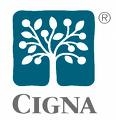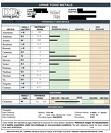| Home > 1. What is Sodium Bicarbonate? > 1.2 CIGNA |
 Previous Next Previous Next  |
|
|
|
 What should I discuss with my healthcare provider? What should I discuss with my healthcare provider? Electrolyte Components
Components may include blood glucose, electrolytes, enzymes, hormones, lipids (fats), other metabolic substances, and proteins. [1]
It helps keep the water (the amount of fluid inside and outside the body's cells) and electrolyte balance of the body. Sodium is also important in how nerves and muscles work. [2]
 For the Heart For the HeartAnd what a relief, to be free of heartburn, bloating and that “awful feeling in the tummy” again. [4]
This is disheartening to even think about, but fungus can be found everywhere. Some studies show that there is even fungus floating around in the air. [5]
If you have kidney, heart, or liver disease and are on fluid restrictions, talk with your doctor before increasing your fluid intake. [6]
 Labels and Labs Labels and Labs Follow the directions on your prescription label. [11]
The recommendation of Medicare is that the laboratory should not run the specimen unless it has an appropriate diagnosis code or a patient waiver accepting responsibility for payment of the test. If the physician does not obtain the waiver, then the laboratory, according to Medicare, should contact the patient directly prior to performing the test to obtain a waiver. [12]
Wounds may be rinsed with a 0.1%-0.2% copper sulphate solution, if available. Dark coloured deposits may be removed with forceps. [13]
 Urine Effects Urine EffectsAlso avoid drinking large amounts of coffee, tea, or cola, which can cause dehydration through increased urination. Do not make a major change in your eating habits or go on a weight loss diet without consulting your doctor. [16]
Drink plenty of fluids during outdoor activities, especially on hot days. Water and sports drinks are the drinks of choice. [17]
The cookie allows us to quickly determine your access control rights and your personal preferences during your online session. The Session Cookie is set out of necessity and not out of convenience. [18]
|
|
|
|

